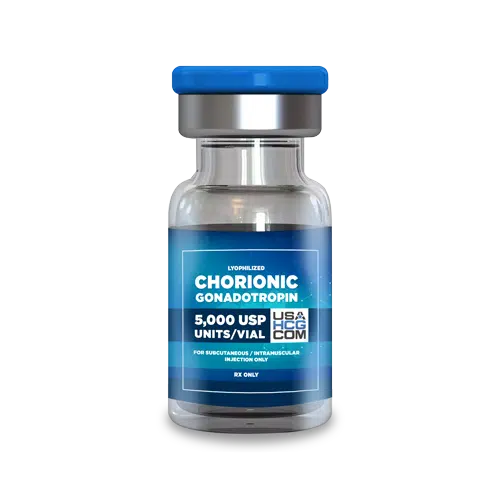The HCG (human chorionic gonadotropin) diet has become an increasingly popular rapid weight loss diet. This controversial diet combines taking HCG supplements along with an ultra-low calorie diet, typically limited to just 500 calories per day.
The protocol laid out by Dr. Simeons includes three distinct phases – loading, very low-calorie diet, and maintenance. After completing the challenging very low-calorie phase and maintenance phase, many wonder what comes next and how to transition off the diet successfully.
Key Facts on Life After the HCG Diet
-
After phase 3, HCG is no longer taken and calories are increased.
-
It’s crucial to transition slowly and deliberately to avoid rapid weight regain.
-
Focus on sustainable nutrition, exercise habits, and lifestyle changes.
-
Allow time for the body’s metabolism to stabilize after rapid weight loss.
-
Be patient – it can take weeks or months to adapt to a new normal after the diet.
“In the United States, 70.7% of adults aged 20 years and over are overweight, including obesity.” – CDC National Center for Health Statistics
Below are some recommended strategies to help you transition smoothly after completing all three phases of the intense HCG diet.
Overview of the 3 Phases of the HCG Diet
Developed in the 1950s by Dr. A.T.W. Simeons, the HCG diet consists of three distinct phases:

Phase 1 – Loading: 2-4 days of high-fat, high-calorie eating
Phase 2 – Very Low-Calorie: 500-800 calories daily plus HCG for 3-6 weeks
Phase 3 – Maintenance: Slowly increasing calories while stopping HCG for 3-4 weeks
The very low-calorie phase is the most extreme, claiming weight loss of up to 1-2 lbs per day. After this intense phase, the maintenance phase helps stabilize weight loss results before transitioning off the diet.
But after completing all three phases of the diet, the real work begins – adapting to everyday eating without the drastic calorie restrictions.
Why the Post-Diet Transition Is Challenging
After following such an intense diet protocol for 6-8 weeks, returning to normal eating patterns is a big adjustment physically and mentally. Difficulties with this transition include:
-
Higher calorie intake – Eating more calories can be scary after weight loss.
-
More food choices – More freedom can lead to overindulgence.
-
Cravings return – Hunger and cravings ramp up.
-
Metabolism lag – Your body may burn fewer calories after weight loss.
-
Motivation drops – Maintaining discipline without the structure of the diet is challenging.
Without a deliberate transition plan, falling back into old habits and regaining lost weight is common.
Setting Yourself Up for Success Post-Diet
To help set yourself up for success after finishing the HCG diet:
-
Expect challenges – Know struggles with the transition are normal.
-
Check-in with your doctor – Get guidance on transitioning off the diet.
-
Plan for the long haul – Commit to permanent lifestyle changes.
-
Learn your “new normal” – Determine a sustainable calorie intake and diet.
-
Ease into exercise – Slowly increase activity vs. jumping into intense workouts.
-
Allow occasional treats – Be flexible so you don’t feel deprived.
-
Get accountability – Share your goals and progress with friends and family.
With realistic expectations and a thoughtful plan, you can transition smoothly into maintaining your weight loss results.
Phases of the Post-HCG Diet Transition
Just as the HCG diet itself has structured phases, the post-diet transition should follow a deliberate progression as well. Here are the typical phases:
1. Short-Term Transition
Right after ending phase 3, calories are slowly increased over several weeks. This helps the body adapt and avoid rapid weight regain.
2. Metabolic Stabilization
Over the next several months, metabolism stabilizes at a “new normal” based on your post-diet weight and muscle mass.
3. Long-Term Lifestyle Adaptation
Permanent lifestyle habits are established to maintain weight loss results and health. The diet fades into the past.
With strategic steps for each phase, the transition can progress smoothly over weeks and months.
How to Transition After the Very Low-Calorie Phase
In the short term after ending phase 3, it’s crucial to slowly transition your calories up to avoid shock to your system. Here are some tips:
-
Increase calories gradually – Add ~200 more per day each week.
-
Weigh yourself regularly – Ensure you are not gaining rapidly.
-
Eat regularly – Don’t wait too long between meals.
-
Include lean protein – Helps retain muscle and control hunger.
-
Fill up on fiber – Choose whole grains, fruits and vegetables.
-
Stay hydrated – Drink water before and between meals.
-
Limit sugars and starches – Avoid spiking blood sugar.
-
Manage stress – Don’t turn to emotional eating.
-
Start exercising – Increase activity levels to build muscle and burn extra calories.
With a slow, methodical approach, your body can adapt to higher calorie intake without regaining weight.
Strategies to Stabilize Metabolism Post-Diet
In the months after the HCG diet, your metabolism stabilizes at a new setpoint based on your current weight and muscle mass. Strategies to support this include:
-
Consume enough calories – Eating too little can lower your metabolism. Calculate your needs.
-
Incorporate strength training – Building muscle helps burn more calories at rest.
-
Eat enough protein – Aim for 0.5-1 gram per pound of body weight daily.
-
Minimize refined carbs – These can disrupt blood sugar and hunger signals.
-
Stay active – Move throughout the day and get daily exercise.
-
Get enough sleep – Lack of sleep can influence metabolism.
-
Manage stress – High cortisol can increase belly fat storage.
With time and consistency, your metabolism will stabilize at a new normal for maintaining weight.
Making Permanent Lifestyle Changes
The ultimate goal after the HCG diet is adapting habits that become your new, healthy lifestyle. Tips for long-term change include:
-
Practice mindful eating – Tune in to hunger, cravings and fullness cues.
-
Meal plan – Prepare healthy meals and snacks for the week ahead.
-
Control portions – Use smaller plates and don’t eat directly from packages.
-
Find fitness you enjoy – This makes regular exercise more sustainable.
-
Get accountability – Share your health goals and progress with supportive friends.
-
Manage stress – Make time for relaxation through yoga, meditation or hobbies.
-
Get enough sleep – Aim for 7-9 hours per night.
-
Be flexible – Allow yourself occasional treats and indulgences without guilt.
With commitment to positive lifestyle changes, you can make your post-diet weight your new normal.
Be Patient With Your Body Post-Diet
It’s important to be patient with yourself and your body after completing an intense diet like the HCG protocol. Here are some realistic expectations:
-
It can take weeks to months for your metabolism to stabilize at a new setpoint. Don’t panic if your calorie needs are lower than pre-diet.
-
Your weight may fluctuate more easily post-diet. Look at the overall trend vs. daily changes.
-
Plateaus are normal. Trust the process and stick with your plan.
-
It takes time to form new, lifelong habits. Commit to consistency.
-
You may struggle with some cravings and hunger as your body adjusts.
With realistic outlooks, you are less likely to get discouraged by normal challenges that come with transitioning off the diet.
Seeking Professional Guidance Post-Diet
Getting guidance from healthcare and nutrition professionals can optimize your transition after finishing the HCG diet.
They can help with:
- Determining your daily calorie needs for weight maintenance
- Medical oversight for any issues like fatigue, dizziness or amenorrhea
- Nutrition advice for eating a balanced diet
- Developing safe and sustainable exercise routines
- Providing accountability, education and emotional support
- Medication adjustments if needed
Investing in professional support gives you the best chance of keeping the weight off long-term.
Set Yourself Up for Success After the HCG Diet
With preparation and diligence, you can transition smoothly off the HCG diet and maintain your hard-earned weight loss results. But the real work begins after the intense diet ends.
Focus on sustainable, healthy changes and be patient with yourself and your body as you adapt to your new normal. Get support in place to help motivate you, troubleshoot challenges, and form habits that will serve your health for life.
Sources:
https://www.scribd.com/book/310538246/Phase-3-HCG-Diet-Successful-Stabilization-Plan-Revealed
https://hcgrecipes.com/hcg-diet-snacks-phase-3-p3/
https://ranimd.com/articles/how-to-keep-the-weight-off-after-an-hcg-diet-treatment
I’m Amy, a health blogger who’s passionate about helping people achieve their weight loss and wellness goals through evidence-based information and practical tips on nutrition, exercise, and self-care. When I’m not blogging, I enjoy hiking, practicing yoga, and experimenting with healthy recipes in the kitchen.









